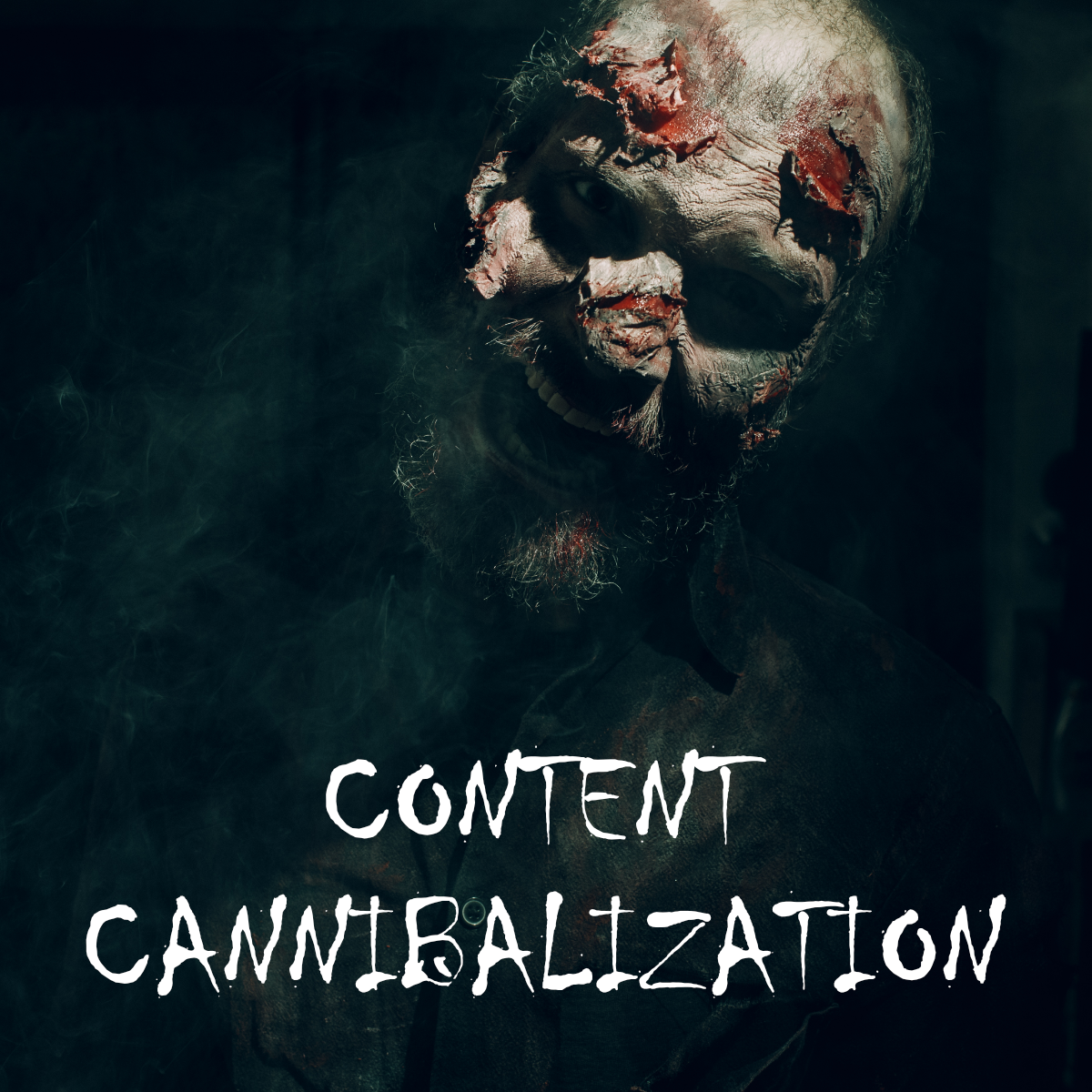Have you ever felt like a hungry zombie, aimlessly wandering the digital marketing wasteland, searching for fresh brains (aka customers)? If so, it’s time to stop devouring your own content and start feasting on a hearty bowl of SEO stew. But first, let’s talk about cannibalization. No, not that kind – we’re talking about content cannibalization!
Content cannibalization is when multiple pages on your website compete for the same keywords or phrases in search engines. This causes confusion for both users and search engines, resulting in lower rankings and decreased traffic. It’s like having a group of zombies fighting over the same brain – it just doesn’t make sense! So, how can you identify and fix cannibalization issues to improve your performance? Grab your weapons (and maybe some garlic) because we’re about to slay some content monsters.
Types of Cannibalization
First things first: let’s identify the different types of cannibalization that could be lurking in the dark corners of your website.
1. Keyword Cannibalization: This refers to multiple pages targeting identical or very similar keywords. It can confuse search engines when trying to determine which page is most relevant for a specific query. Imagine two zombies with equally terrifying costumes – how do you know which one will give you the best scare?
2. Duplicate Content: This occurs when large chunks of text or entire pages are copied across different URLs on your site. It’s like having multiple copies of “Night of the Living Dead” in your DVD collection – it takes up space and causes confusion.
3. Internal Linking Issues: Poorly planned internal linking can lead to pages competing against each other or failing to pass link equity effectively. Think of it as a group of zombies trying to find their way through a maze – without proper guidance, they’ll just keep bumping into each other.
4. Conflicting Meta Data: If your meta titles and descriptions are too similar, search engines may struggle to understand the purpose of each page. It’s like trying to differentiate between “Zombie Apocalypse 1” and “Zombie Apocalypse 2” – if there’s no clear distinction, how do you know which one to watch?
How to Fix Cannibalization Issues
Now that we’ve identified the monsters in our content graveyard, it’s time to get rid of them once and for all.
1. Create a Keyword Map: Just like a treasure map (but without the buried gold), a keyword map helps you allocate specific keywords or phrases to individual pages on your site. This ensures that each page has its own unique focus and reduces the chances of cannibalization.
2. Merge or Delete Duplicate Content: If you have multiple pages with very similar or duplicate content, consider merging them into one comprehensive page or deleting the least valuable ones. Remember – quality over quantity!
3. Improve Internal Linking: Make sure you’re linking internally using relevant anchor text and pointing users towards the most appropriate content for their needs. This will not only help with cannibalization issues but also improve user experience and increase dwell time on your site.
4. Optimize Meta Data: Ensure each page has unique meta titles and descriptions that accurately reflect its content. This will help search engines differentiate between pages and improve click-through rates from search results.
How to Increase Pageviews and SERP Rankings
Now that we’ve dealt with those pesky content zombies, let’s focus on increasing pageviews and SERP rankings.
1. Produce High-Quality Content: This should go without saying, but creating well-researched, engaging, and informative content is crucial for any website looking to rank higher in search results.
2. Optimize On-Page SEO Elements: Make sure to include your target keywords in important on-page elements like headers, URLs, and image alt tags.
3. Build Quality Backlinks: Reach out to authoritative websites within your industry and ask for backlinks or guest posting opportunities. This will not only increase referral traffic but also improve your website’s overall authority.
4. Monitor Performance: Regularly analyze your organic traffic, rankings, and user engagement metrics to identify areas of improvement and optimize accordingly.
How VGCC Can Help
Now that you’re armed with the knowledge to defeat content cannibalization and boost your website’s performance, it’s time to put those skills into action. But if you’re feeling overwhelmed or would rather have a team of seasoned zombie slayers handle the job for you, VGCC is here to help!
At VGCC, we specialize in providing digital marketing services at affordable prices. Our expert team can identify cannibalization issues on your website, implement effective strategies to fix them, and optimize your content for maximum performance.
As we banish those content monsters from your site (don’t worry – no actual zombies were harmed in the making of this blog post), watch as your pageviews increase and SERP rankings climb higher than ever before. And remember – when it comes to digital marketing success, don’t let conflicting content eat away at your performance!
